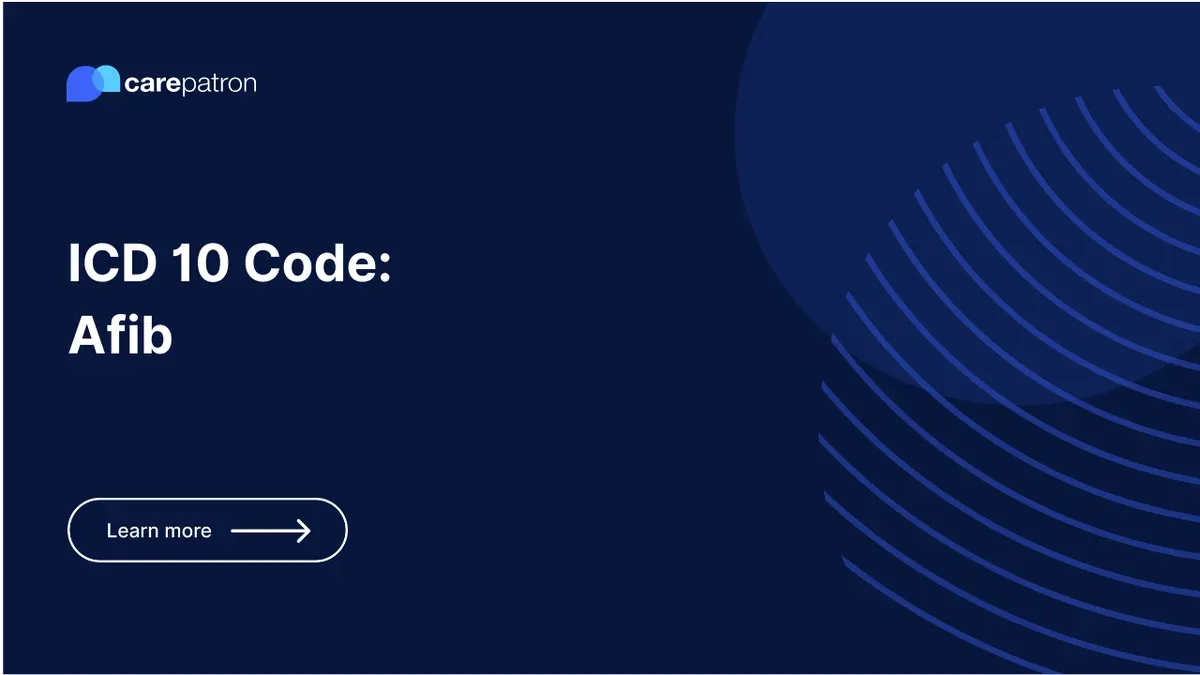
Afib ICD-10-CM Codes | 2023
Decode the significant AFIB (Atrial Fibrillation) ICD-10-CM codes for 2023 with us, including clinical data, billability, synonyms, and FAQs all in one place.
Use Code
Commonly asked questions
AFIB is typically diagnosed through a thorough review of symptoms, a physical examination, and a series of tests which may include an EKG, event recorder, Holter monitor, or echocardiogram.
Maintaining a healthy weight, regular physical activity, moderating alcohol, reducing caffeine, quitting smoking, and controlling blood pressure and cholesterol can help manage AFIB.
Yes, periods of high stress or anxiety can trigger outbreaks of AFIB. Incorporating stress-reducing activities like yoga, meditation, or other relaxation techniques into your routine is recommended.
EHR and practice management software
Get started for free
*No credit card required
Free
$0/usd
Unlimited clients
Telehealth
1GB of storage
Client portal text
Automated billing and online payments
